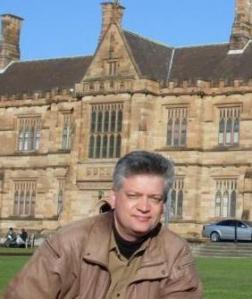 By Bill Powell (Fortune Magazine September 15, 2009)
By Bill Powell (Fortune Magazine September 15, 2009)
James Kim (74), an American businessman turned educator, once sat in the very last place that anyone in the world would wish to be: a cold, dank prison cell in Pyongyang, the godforsaken capital of North Korea.
Kim, who had emigrated from South Korea to the United States in the 1970s, had been a frequent visitor to Pyongyang over the years in pursuit of what, to many, seemed at best a quixotic cause. He wanted to start an international university in Pyongyang, with courses in English, an international faculty, computers, and Internet connections for all the students. Not only that — in the heart of the world’s most rigidly Communist country, Kim wanted his school to include that training ground for future capitalists: an MBA program.
During one of his trips to the capital in 1998, with North Korea in the midst of a famine that would eventually kill thousands, the state’s secret police arrested Kim. North Korean dictator Kim Jong Il didn’t lock up the educator for being crazy. He got it in his head that the oddly persistent American — who at the time, among other things, was helping to feed starving North Koreans with deliveries of food aid from China — was a spy.
So for more than 40 days, Kim languished in a North Korean prison. An evangelical Christian, Kim wrote his last will and testament during those days, not knowing if he’d ever get out…
… PUST is — very much — a work in progress. But given how close it is to reality, issues like curriculum fade. The only one out there who thought there’d be an international university opening in Pyongyang in 2009, offering the equivalent of an MBA, with courses in English to some 600 students, was the same guy whom the North Koreans arrested in 1998.
James Kim and his cohorts will no doubt figure out a way to teach Econ 101. They’re going to teach Western economics, and finance, and management in one of the most backward economies in the world, one which again is having trouble feeding many of its citizens, according to recent reports from NGOs there.
That may seem like a rather hopeless task, but hope — not to mention faith — is something James Kim has in abundance. And given that he was sitting in a Pyongyang jail 11 years ago this month, who could blame him?
See the full text of this article here…
—
 by Sunny Lee,
by Sunny Lee,  SBS Radio Worldview (3 July 2009)
SBS Radio Worldview (3 July 2009) 조숭호 기자 [인터뷰] 호주 시드니대 페트로프 박사 (
조숭호 기자 [인터뷰] 호주 시드니대 페트로프 박사 (

You must be logged in to post a comment.